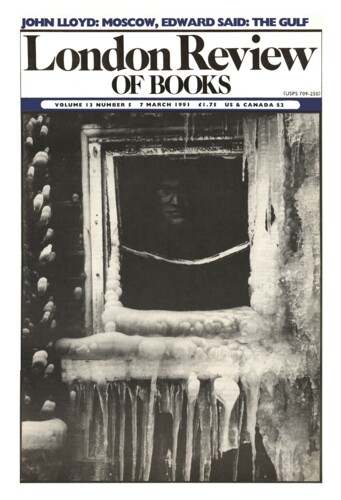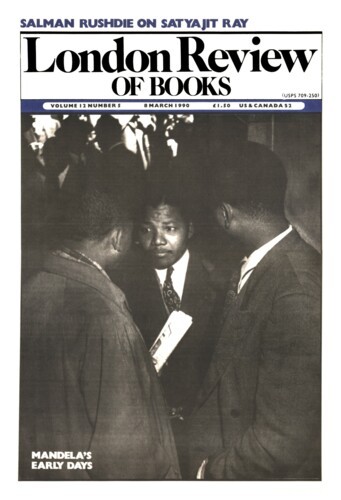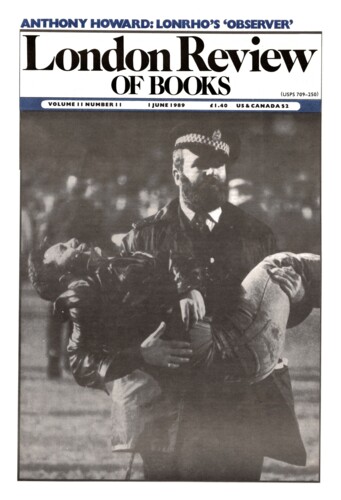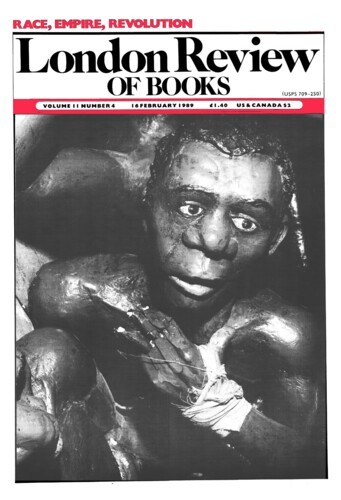Adventures at the End of Time
Angela Carter, 7 March 1991
Iain Sinclair, in the profane spirit of Surrealism, has chosen to decorate the endpapers of his new work of fiction with a dozen unutterably strange picture-postcards. They show scenes such as that of six men, heavily veiled, veils held down by brimmed hats, posed with long-barrelled rifles. And two men in grass skirts, with feathers in their hair, intent on a game of billiards. They are Africans. And here are twenty-odd white men, in straw boaters, surrounding a prone crocodile. Joblard, Sinclair’s friend, arranges the cards so that they tell a story. At once they become scrutable: they are images of imperialism. Joblard titles this picture story, what else, ‘Heart of Darkness’. But the 12 interconnected stories in Downriver don’t match up with the numbered postcards, unless in such an arcane fashion it must necessarily remain mysterious to me. Downriver is really a sort of peripatetic biography: Iain Sinclair’s adventures at the end of time, at the end of his tether, in a city of the near future with a hallucinatory resemblance to London. The decisive influence on this grisly dystopia is surely the grand master of all dystopias, William Burroughs. Jack Kerouac, asked for a quote for the jacket of The Naked Lunch, said it was an endless novel that would drive everybody mad. High praise. Downriver is like that, too.





